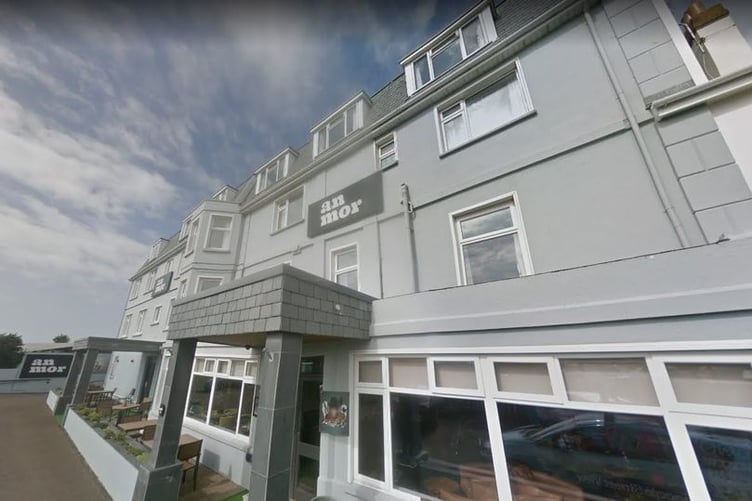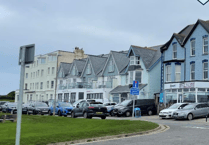THE developer of the retirement complex proposed for the site of An Mor Hotel in Bude will not have to pay towards infrastructure improvements, it has been revealed.
It comes after the decision to uphold the appeal against the decision to refuse planning permission for the demolition of the existing hotel building with its replacement in the form of 39 retirement flats was decided by the Planning Inspectorate in favour of Churchill Retirement Living.
In the lengthy decision notice giving the reasons why it would allow the appeal, the planning inspector said that a viability review by the developer stated that if it was required to pay infrastructure contributions, or provide affordable housing within the complex, it would render the development ‘unviable’.
It began by stating the identified need for affordable housing and public open space in the Bude area, adding: “The Council has identified substantial AH (affordable housing) need within the local area through its policies and Strategic Housing Market Assessment (SHMA) 2016.
“For POS (public open space), it has identified requirements relating to enhancements at Bude Recreation Ground and the creation or improvement of open space within Bude Parish.”
The inspector then stated that in his view, no justification has been provided by the council stating that the development would adversely affect the provision of public open space. He then detailed the representations from local health organisations related to the need for additional healthcare, continuing: “Nevertheless, no justification has been provided arising from the needs of future residents taking into account the existing public open space provision in the area.
“The local NHS trust has identified a need for additional healthcare provision due to the development’s new residents and identified projects at Neetside Surgery and Ruby County Medical Practice.
“Third parties, including a doctor from the Neetside Surgery, have commented upon the shortage of affordable housing for local people and appointments for patients, and the adverse effects of increased demand on health services, such as increased waiting times and prolonged illness.”
‘Contributions would make the plans unviable’
After acknowledging the representations related to affordable housing and public open space, the inspector then went onto detail the reasons given by Churchill Retirement Living as to why they would not be able to contribute towards affordable housing or infrastructure.
His decision report continued: “However, the appellant’s April 2024 Viability Review (VR) indicates that the inclusion of infrastructure contributions would render the proposal financially unviable. Furthermore, it indicates future rises in build costs would rise faster than sales, based on most lenders and property portal sites.
“The council has agreed the VR and the key variables within it. For the appeal scheme, sales values are comparable to a similar scheme in Bude, taking into account index linking, and the greater and more attractive unit sizes of the appeal scheme.
“Build costs have also been undertaken in accordance with industry recognised costings whilst the selling programme and unsold unit costs are based on the appellant’s particular experience of selling retirement homes.
“Profit would reflect the greater risk associated with retirement home developments, such as providing accommodation tailored to elderly residents compared to conventional homes. Finally, the hotel has been professionally valued and a reasonable incentivised selling value added. Whilst the added incentivise value is largely a matter of judgement, the value would be appropriate given the hotel’s profitability, the owner’s investment into it, and its capacity to grow through greater use of its restaurant, bar and function room.
“Having assessed the VR, there are no reasons for me to reach alternative conclusions, especially as there is no comparable alternative evidence before me. Consequently, infrastructure provision cannot be justified on the basis of the VR as it would otherwise put at risk the development coming forward.”
The inspector added that a mechanism would be put in place, that if after 36 months, the development had not progressed beyond a ‘shell and core’ stage of the work, a new ‘viability review’ would need to be put into place and if the review demonstrates an improved viability, the developer may be required to pay a proportion of additional profit made towards infrastructure.
It added: “Notwithstanding this, the s106 agreement details a viability review reappraisal mechanism whereby, if the development has not reached a ‘Shell and Core Finish’ stage within 36 months of planning permission being issued, an updated VR shall be carried out.
“If the review demonstrates improved viability, the developer shall pay. one or all of affordable housing, public open space and public health contributions. based on a proportion of additional profit.
“The PPG details that plans should set out circumstances where review mechanisms may be appropriate, as well as a clear process and the terms of engagement regarding how and when viability will be reassessed over the lifetime of the development.”


.png?width=209&height=140&crop=209:145,smart&quality=75)





Comments
This article has no comments yet. Be the first to leave a comment.